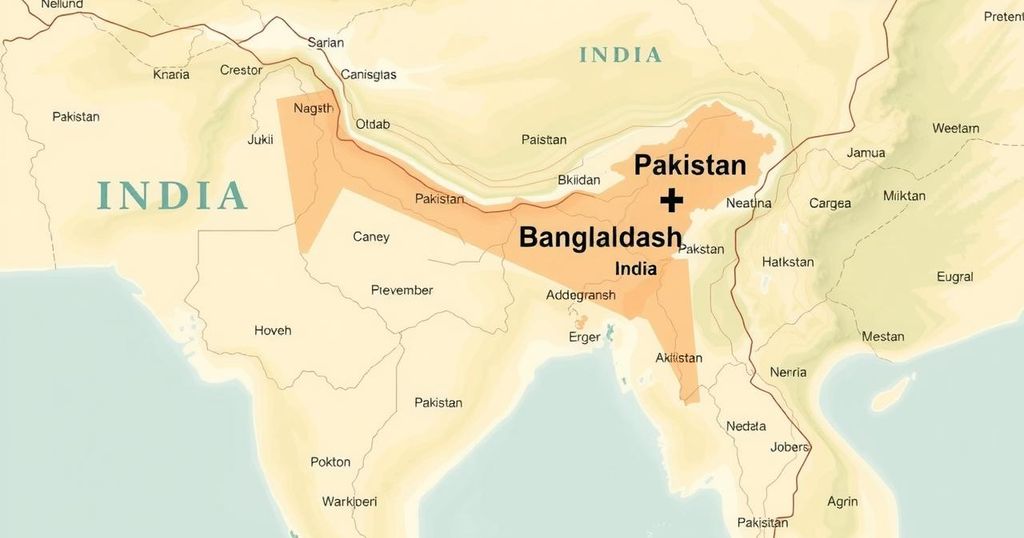Recent political upheavals in Bangladesh have fostered warmer ties with Pakistan, marked by the resumption of trade and military cooperation. These developments, viewed with concern by India, stem from historical grievances dating back to the 1971 war. While progress may be made in bilateral trade, unresolved historical issues continue to challenge the relationship between the two nations.
Recent political changes in Bangladesh have led to a thawing of relations between Bangladesh and Pakistan, which had been historically adversarial. Following the ousting of Prime Minister Sheikh Hasina last year, Dhaka has initiated trade with Islamabad, importing 50,000 tonnes of rice from Pakistan. Furthermore, military contacts and direct flights have resumed, indicating a significant improvement in bilateral ties.
The historical context between Bangladesh and Pakistan is fraught with tension, stemming from the 1971 independence war when India supported the rebels fighting against Pakistani rule. Despite a period of amicable relations from 2001 to 2006, Hasina’s governance from 2009 onward often strained ties with Pakistan. However, reports suggest that the relationship is normalizing once again in light of recent political shifts.
Former Bangladeshi diplomat Humayun Kabir commented that the dynamic appears to be evolving back to one akin to “two normal neighbours.” This renewed engagement has captured the attention of India, which perceives this transformation with concern, considering its long-standing adversarial relationship with Pakistan.
Diplomatic relations between Bangladesh and India became tense following Hasina’s exit from power. Bangladesh’s calls for India’s extradition of Hasina, who faces several criminal charges, have gone unacknowledged by Delhi. Experts speculate that the revival of ties reflects a strategic alignment to counter India’s influence within the region.
Muhammad Yunus, the interim leader of Bangladesh, has engaged with Pakistani Prime Minister Shehbaz Sharif, signaling a commitment to bilateral dialogue. The resurgence of military cooperation has also been significant, highlighted by a notable visit from a Bangladeshi military delegation to Pakistan and joint military exercises.
This rekindling of military ties poses a potential security concern for India. Former High Commissioner to Bangladesh Veena Sikri noted that historical issues such as the training of Indian insurgents within Bangladesh raise red flags. While both parties have denied claims regarding Pakistani involvement in Bangladesh’s internal security matters, concerns remain regarding the scope of their military cooperation.
Ultimately, political analysts maintain that while economic pragmatism may encourage trade relations, unresolved historical grievances from the 1971 war hinder any substantive normalization of relations. Call for a formal apology from Pakistan for past atrocities continues to be a critical point of negotiation for Bangladesh regarding bilateral ties.
Despite the shadows cast by history, economists emphasize the potential for increased trade, which has currently hovered under $700 million. There is optimism from scholars that political improvements could facilitate better economic relations, ultimately benefiting both nations economically while recognizing the complexities of their past.
In summary, the evolving relationship between Bangladesh and Pakistan amid political changes presents both opportunities and challenges. The recent resumption of trade and military contacts signifies a potential thaw in historically adversarial ties. However, unresolved historical grievances, particularly regarding the 1971 war, continue to pose significant barriers to a full normalization of relations. The interplay of economic interests and geopolitical stability holds considerable implications for India, emphasizing the need for a careful approach to future diplomatic strategies in the region.
Original Source: www.bbc.com






